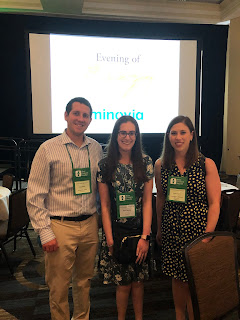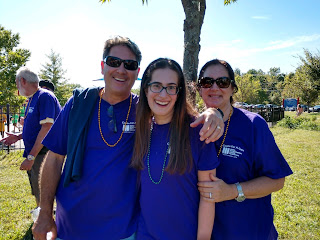Doctors who are Clueless
Have you ever been to the doctor and felt totally disrespected and bullied? Up until this week, my experiences with doctors have been fairly positive.
I went to see my primary care doctor for my yearly physical and she was so rude to me throughout the appointment, I literally broke down in tears.
I knew the doctor was going to be late because I had been there for my flu shot the week before and waited thirty minutes for her. Therefore, I asked someone at the front desk to let me know when the doctor gets to the office, so I didn't have to sit in a gown and be cold for 30 minutes. The employee was very nice and told me there was a patient ahead of me, so she had no problem doing that. However, the front desk employee forgot to tell me and the doctor walked into the room, without knocking, to get something for another patient and questioned me about why I was not changed yet in a rude tone. I felt like a child who was in trouble for doing something wrong at school. Not to mention, she asked me three times if I was there for my flu shot when she had given the shot to me the week before.
It all went downhill from this confrontation. . .
This doctor knows nothing about Mitochondrial Disorders, which is why I have a Mitochondrial Disease specialist that I have been seeing since I was eight years old. Even with this lack of specialty, she told me that I should not be taking a vitamin for my Mitochondrial Disease. In my own career, I am very careful about speaking on things I do not know about. I feel doctors should do the same when speaking to their patients. Every professional should be humble enough to say, "I am not sure about the answer to your question but I am happy to do some research or refer you to a specialist in that area. The funny thing is I did not even ask for her opinion on this vitamin but was simply adding it to the list of vitamins she already had for me.
The doctor also decided to offer unsolicited advice on my speech impairment by saying that I do not have a speech impairment and instead just talk fast. I explained to her that having difficulties pacing your speech is the definition of a speech impairment but she decided to continue nagging me about this. She demanded, "when you talk to me you will slow down." If it was that easy for me to slow down don't you think I would do it? I was already anxious which makes my speech impairment worse but when she said this I burst into tears. I wasn't trying to be dramatic but my speech impairment is the part of my disability I am most sensitive about and I was trying so hard to speak clearly and slow down.
The doctor also asked me why I do not live in New Jersey close to my parents because it would be easier. I said to her that I like living in NC because I can be independent here and I have a job that I love. She told me that your mom should come down and help you and I told her that my mom does come down and help me when I need it but I am doing fine on my own.
As I was leaving they wanted to do blood work. I told the nurse that I am not getting the blood work done because I was so upset and I just wanted to leave. She told me that I cannot leave until I see the doctor again.
I told her that I can leave when I want to because I am not in jail. It felt so good to say that because I was so over being there by this point.
The point of me sharing this experience is to show the reality of some doctors when dealing with people who have disabilities and rare genetic conditions. This doctor and I'm sure many others need sensitivity training.
I will be finding a new doctor who is sensitive to my disability and doesn't speak about topics that are not in their area of expertise.
Written by
Sydney Breslow
Sydney Breslow




Comments
Post a Comment